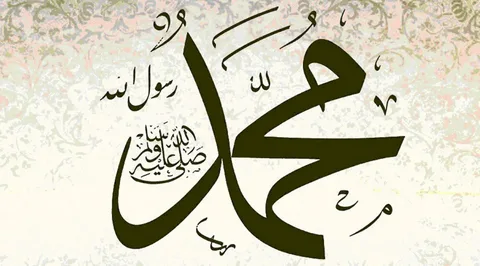The birth of Prophet Muhammad stands as a pivotal moment in history, shaping the course of civilizations and inspiring millions worldwide. In this article, we delve into the life of the Prophet, exploring the circumstances surrounding his birth, his early life, prophethood, and the profound impact he had on society.
Early Life of Prophet Muhammad

Prophet Muhammad was born in the city of Mecca, known for its rich cultural tapestry and diverse tribal affiliations. His family, part of the esteemed Quraysh tribe, played a significant role in the affairs of Mecca. The young Muhammad experienced the loss of his father before birth and his mother at a tender age, marking the beginning of a life filled with challenges.
Prophet Muhammad’s Prophethood
The turning point in Muhammad’s life occurred during one of his contemplative retreats in the Cave of Hira. The archangel Gabriel appeared, initiating a series of revelations that would form the basis of the Quran, the holy book of Islam. The initial reception of his message faced vehement opposition, but Muhammad persevered, guided by his unwavering faith.
The revelations continued over a period of 23 years, forming the Quran, the holy book of Islam.
Message of Islam, Muhammad’s primary message was the oneness of God (Allah) and the rejection of idol worship.
He emphasized moral and ethical values, including compassion, justice, and charity.
Spread of Islam
The message of Islam, centered around monotheism and compassion, gradually gained traction. Despite facing persecution, Muhammad’s followers multiplied, and the city of Medina became a sanctuary for the burgeoning Muslim community. The Prophet’s leadership and the resilience of his followers played a pivotal role in the spread of Islam.
Miracles and Signs
Numerous miracles and signs accompanied Prophet Muhammad’s life, reinforcing the divine nature of his mission. From the splitting of the moon to the miraculous Night Journey, these events solidified the faith of his followers and left an indelible mark on Islamic history.
Characteristics of Prophet Muhammad
Prophet Muhammad’s character exemplified humility, compassion, and justice. His leadership during times of conflict showcased strategic acumen and a commitment to peace. The Prophet’s life serves as a model for Muslims, emphasizing virtues such as honesty, integrity, and generosity.
Impact on Arabian Society
The teachings of Prophet Muhammad ushered in a transformative period in Arabian society. The elimination of social injustices, the emphasis on equality, and the prohibition of usury were among the radical changes that reshaped the fabric of Meccan society.
Migration to Medina

Persecution in Mecca reached a critical juncture, leading Prophet Muhammad and his followers to migrate to Medina. This migration, known as the Hijra, marked the establishment of the first Islamic state, laying the foundation for a society based on justice and egalitarian principles.
Key Events in Prophet Muhammad’s Life
The battles of Badr and Uhud, as well as the Treaty of Hudaybiyyah, were significant events that tested the resolve of the Muslim community. Prophet Muhammad’s leadership during these challenges solidified his role as a visionary statesman and spiritual guide.
Last Sermon
The farewell sermon delivered by Prophet Muhammad encapsulated the essence of his teachings. Addressing a vast gathering of followers, he emphasized unity, justice, and the sanctity of human life, leaving behind a timeless message for generations to come. Prophet Muhammad passed away on June 8, 632 CE, in Medina. His death marks the end of prophethood in Islam.
Legacy of Prophet Muhammad
Prophet Muhammad’s legacy extends beyond the borders of the Islamic world. His teachings laid the groundwork for Islamic civilization, contributing to advancements in science, philosophy, and the arts. The Prophet’s emphasis on compassion and tolerance continues to resonate with people of diverse backgrounds.
Muhammad is revered as the “Seal of the Prophets,” signifying the end of the line of prophets in Islam.
His teachings and actions, known as the Sunnah, are documented in the Hadiths and provide guidance for Muslims.
Celebration of Mawlid
The observance of Mawlid, or the birthday of Prophet Muhammad, is a cultural practice embraced by many Muslims. Commemorated with joyous festivities, Mawlid serves as a moment to reflect on the Prophet’s life and teachings, fostering a sense of community among believers.
Controversies Surrounding Mawlid
While Mawlid is widely celebrated, some within the Islamic community raise concerns about its historical authenticity. Debates regarding the permissibility of celebrating the Prophet’s birthday highlight differing perspectives within the Muslim world.
Global Recognition
Beyond the Muslim world, Prophet Muhammad is acknowledged for his role in promoting peace, tolerance, and social justice. His teachings resonate with individuals seeking a path of spiritual enlightenment, transcending cultural and religious boundaries.
Learn Now: Islamic Studies Course Online For Kids
FAQs
Why is the birth of Prophet Muhammad significant?
The birth of Prophet Muhammad is significant as it marks the beginning of a transformative era in history, influencing the course of Islamic civilization and beyond.
What were the key challenges faced by Prophet Muhammad during his prophethood?
Prophet Muhammad faced opposition, persecution, and battles in spreading the message of Islam, testing the resilience of the early Muslim community.
Why is Mawlid celebrated by Muslims?
Mawlid is celebrated to commemorate the birth of Prophet Muhammad, fostering a sense of community and reflection on his life and teachings.
How did Prophet Muhammad's teachings impact Arabian society?
Prophet Muhammad's teachings brought about social and cultural transformations, eliminating injustices and promoting equality in Arabian society.
What is the global recognition of Prophet Muhammad's legacy?
Prophet Muhammad is globally recognized for promoting peace, tolerance, and social justice, transcending cultural and religious boundaries.
Conclusion
In conclusion, the birth of Prophet Muhammad heralded a new era of enlightenment, compassion, and justice. His life serves as a beacon of guidance for millions, transcending time and cultural boundaries. The enduring impact of Prophet Muhammad’s legacy continues to shape the destinies of those who seek wisdom and inspiration.


